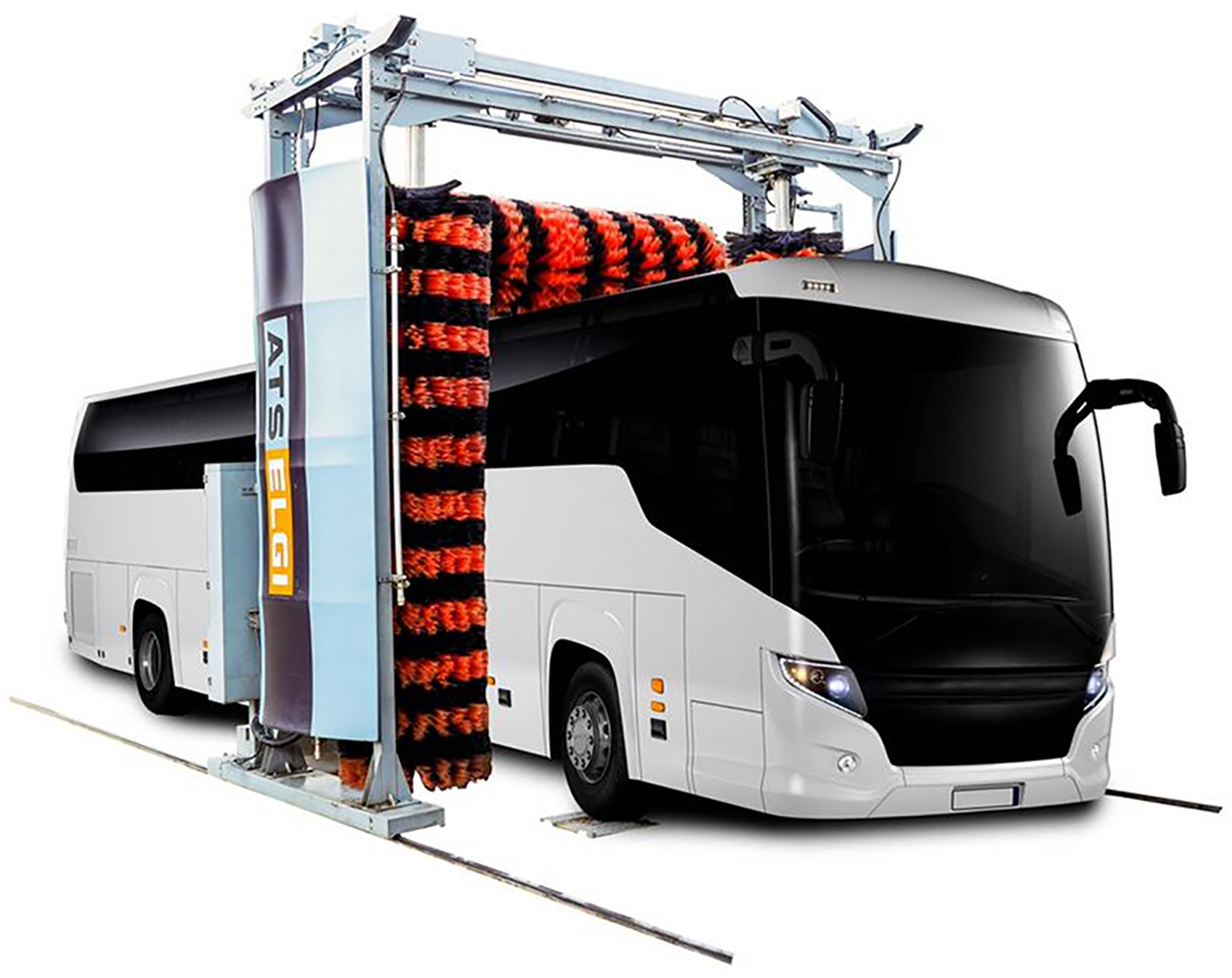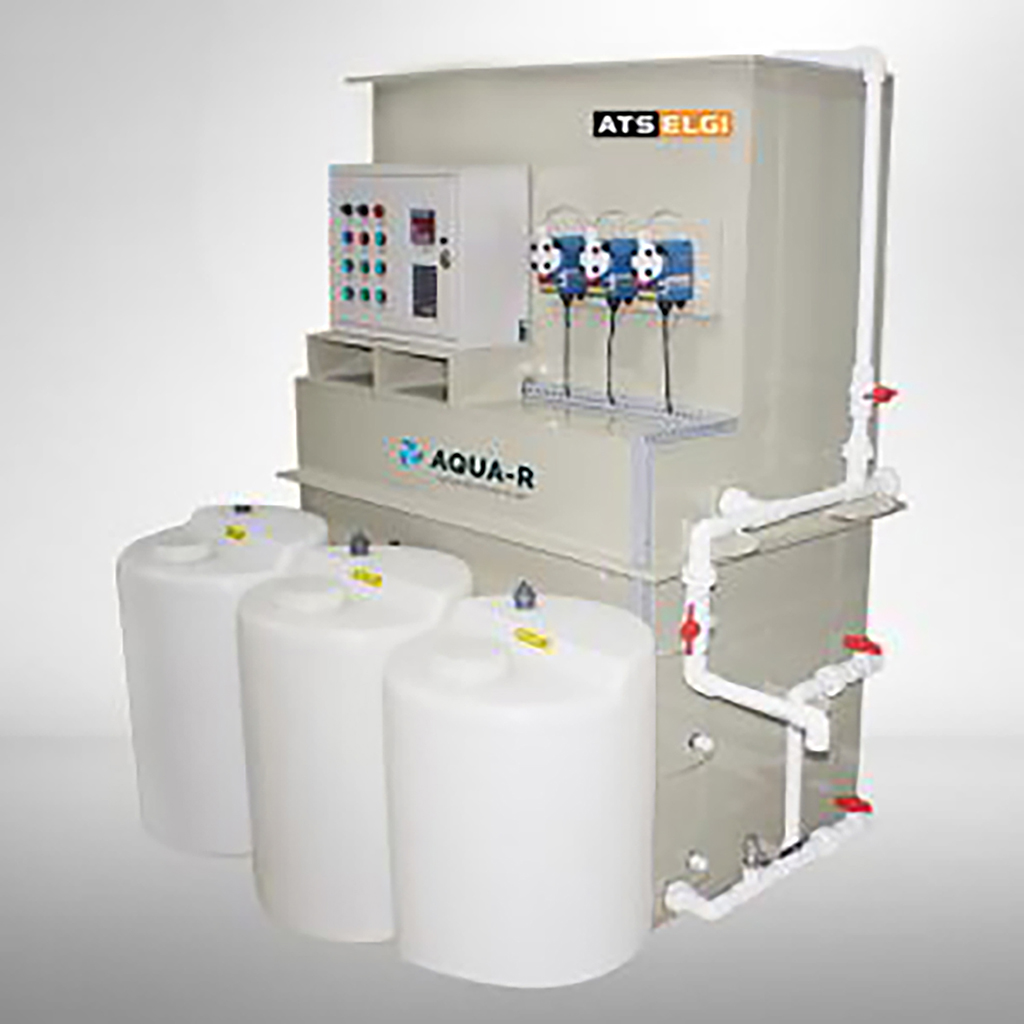With the company’s automatic bus washer, a workshop can accomplish the task in just 7-7.5 minutes with only 100-250 litres of water and reduced staff
ATS ELGI has launched an automatic bus washer that meets the high demand from commercial workshops as they increasingly adopt automation to improve productivity and lower dependence on human resources. The product is ideal for washing all types of buses. It is capable of washing buses up to 15 metres in length and 2.9 metres in width. ATS ELGI, an established player in the washing segment since the 1960s, has been offering customers advanced products that cater to emerging shifts in market demand.

What started off as the single plunger evolved into triple plunger washer and was followed by the era of semi-automatic and automatic car washers in 2010 with the launch of ATS ELGI’s Smartwash® range of automatic washers which has the underlining benefits of automatic washing over manual washing such as water saving, streamlining the washing process, reduced dependence on people and consistent quality wash throughout the day
The commercial vehicle industry has shown stability in both sales and service revenues. With the latest addition to the washing range of products, the automatic bus washer, ATS ELGI is expected to further strengthen its position in the market. The product is set to dramatically improve the efficiency of the workshops. At present, it takes at least 4-5 staff and 15-30 minutes to wash a bus manually. Manual washing of a bus also consumes 400-600 litres of water. Now, with the automatic bus washer, a workshop can accomplish the task in 4-7 minutes with only 100-250 litres of water and reduced staff.
Some of the unique features and advantages of the Automatic Bus Washer include:
• 3 Brush System-one horizontal and two vertical brushes, makes simultaneously washing of top and side of a bus possible
• Safety lock and Sensors to monitor the brushes
• Precisely senses the windscreen for washing without damaging the front extended mirrors
• Overlapping brushes at the front and rear to avoid dead-spots for washing efficiency
• A contour following system- covers the whole profile of the bus
• Optimally placed water and shampoo nozzles that cover the vehicle with a minimum number of nozzle streamlines water consumption.
• Improves washing quality and reduces dependence on skilled people.
The product is beneficial for private bus fleet owners, state road transport corporations and other institutions such as schools and colleges with their own fleet of buses.
Water Recycling Plant – Aqua R

Vehicle wash stations use large quantities of water and chemicals for cleaning and dispose of the waste into water bodies, severely impacting the environment and marine life. ATS ELGI’s water recycling plant ‘Aqua R’ eliminates this toxic cycle with a sustainable option. The product is available in 2 variants – 1000 LPH and 4000 LPH treatment models.
Features
• Chemical base model with coagulation and flocculation as the basic working principle, ensuring that treated wastewater can be used multiple times
• Meets major PCB parameters in terms of pH, total suspended solids, oil and grease, biological and chemical oxygen demand
• Water Recovery up to 100%
• Zero discharge into public Sewage
• Clear Recycled water
—
The ATS ELGI impact at KSRTC
To do away with manual labour in bus washing after every trip and to maintain cleanliness, the Karnataka State Road Transport Corporation (KSRTC) installed ATS ELGI automatic cleaning and sanitising machine which can clean the bus in just five minutes and retain the brand-new look of its luxury buses. Once the censors-based machine is switched on, the huge machine mounted on tracks on both the end and on top is fitted with polythene brushes which move horizontally and clean the bus.
As per Depot Manager Annapaiah Achar of KSRTC Volvo Unit, the bus travels to various destinations and the muddy and slushy water and dust may cover the bus exterior and may also result in infection of passengers and cause rust to buses in the long run. To keep the passengers safe and also to retain the good look, manual labours were pressed after every trip and it used to take at least 40 minutes to clean the bus. Now with this latest technology, the first-of-its-kind in the bus transport corporation in Karnataka, the KSRTC is able to clean its buses in quick five minutes. The official added that it just takes 4 kilowatts of power to clean one bus and each time it takes only 280-300 litres of water per bus.